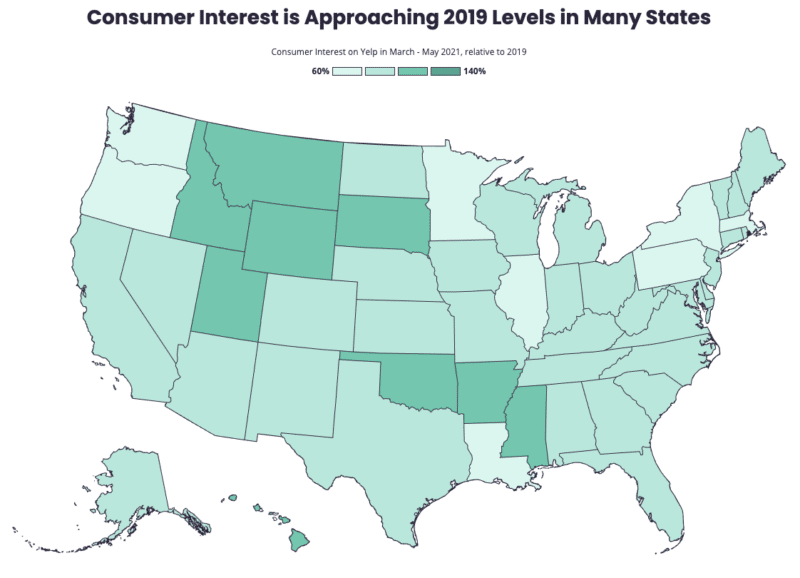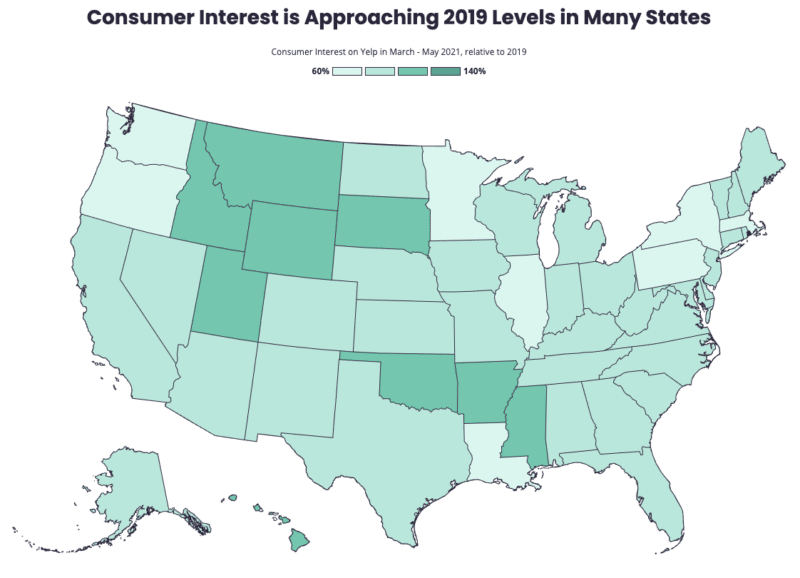Search Engine Land’s daily brief features daily insights, news, tips, and essential bits of wisdom for today’s search marketer. If you would like to read this before the rest of the internet does, sign up here to get it delivered to your inbox daily.
Good morning, Marketers, could the industry’s biggest players win over privacy enthusiasts?
Brave, the privacy-centric browser, recently made its search engine available as an open beta. And last week, DuckDuckGo boasted about its 55% increase in search traffic over the last 12 months. Both companies are expanding their offerings to appeal to privacy-conscious users, and I would assume they’re doing so because they see a growing business opportunity.
It’s easy to just say that the smaller search engines are trying to take a bite out of Google’s market share, because they are, but that’s something of an oversimplification. The tech giants, like Google and Apple, are also trying to show users that they care about privacy — or perhaps, that they care that their users care about privacy. You can see it in the language used in their blog posts and in the changes and features they’ve announced as of late, like Apple’s App Tracking Transparency and Google’s Android counterpart to it.
My opinion is that the companies that were founded with privacy as a cornerstone are likely to develop better products for privacy-conscious users because the strategic decisions they make and the investment capital they take will be dictated by that core philosophy. On the other hand, the entrenched players already have stakeholders to answer to and may have built their products long before privacy was top-of-mind for so many users, meaning that they may have to overhaul a lot of their offerings. However, they’re also more likely to have the resources to make it happen.
Will Google, Bing, Facebook or any of the other tech giants be able to attract more privacy-minded users, or are their initiatives more about preventing users from leaving their ecosystems? Let me know what you think, email me at gnguyen@thirddoormedia.com (subject line: Hands off my cookie jar).
George Nguyen,
Editor
Google Search released a spam update on June 23
For those who’ve (understandably) lost track, over the last two months we’ve experienced Google’s product reviews update, the June core update, the page experience update (which is still rolling out) and yesterday, the company announced that it rolled out a spam update totally separate from all those other ones.
Yesterday’s spam update rolled out in a single day, unlike core updates do, and Google also revealed that a second spam update will come next week. If you noticed ranking changes yesterday, they might be related to Google’s spam-fighting efforts, so ensure your site is playing by Google’s rules and guidelines to preserve your organic visibility.
Ask the expert: Your top FLoC questions answered
“Let me get on my soapbox here for a minute and talk about the thing that’s really huge now. The thing that we can immediately do something about and that too many advertisers do wrong, is they don’t communicate to Google what a conversion is. Yeah, you do conversion tracking, but you don’t really tell Google what it is that you truly care about,” said Frederick Vallaeys about improving measurement in FLoC at the Q&A after his SMX Advanced session.
Attendees from all over the world threw their toughest FLoC inquiries and scenarios at Vallaeys, cofounder and CEO at Optmyzr. Tl;dr?
- Will it work for B2B? Maybe
- How is Google testing FLoC? Constantly.
- How can we improve measurement? Tell Google what metrics actually matter.
- How will cross-device browsing and targeting work? If you search differently on each device, you’ll be in different cohorts on each.
- Will targeting still be precise? Yes.
Consumer interest already exceeds 2019 levels in some states

Americans are eager to return to their pre-pandemic lifestyles, according to data from Yelp’s June 2021 Economic Recovery Report. Consumer interest (shown above), measured by actions taken by users to connect with businesses on Yelp, has already exceeded 2019 levels in states such as Idaho, Wyoming, Utah, Montana, South Dakota, Oklahoma and Arkansas. Smaller metro areas seem to be recovering more rapidly than larger metros, which may have implemented more aggressive safety measures to counteract the spread of COVID.
Recovery is also well underway across numerous business sectors: restaurants have recovered to 86% of their 2019 consumer interest levels while food businesses have bounced back to 92%. Shopping and retail is also making a return, having recovered to 92% of March-May 2019 levels, driven by what many are referring to as “revenge shopping.” Home and local services, fueled by heightened demand, have recovered to 99% of 2019 levels and automotive services have exceeded the benchmarks from two years ago, with Yelp measuring 106% recovery in this sector.
Mordy Oberstein joins Semrush as head of communications
#SEOchat organizer and host Mordy Oberstein has joined SEO toolset provider Semrush as its new head of communications. In addition to facilitating SEOchat, Oberstein is an active member of the SEO community, co-hosting EDGE of the Web’s news podcast as well as his own SEO Rant podcast and having presented at multiple SMX events.
Prior to joining Semrush, Oberstein served as liaison to the SEO community for Wix, and he will continue to be a member of Wix’s advisory board. Before that, he worked for another SEO toolset provider, Rank Ranger, as its chief marketing officer.
“[I want] to help the people on my team be as effective and as happy as possible — that’s #1 by far,” Oberstein told Search Engine Land when asked what he hopes to achieve in his new role. “And, to share deep and really helpful information and data that can help SEOs better understand the environment that they are in so as to make better decisions, as well as help the community understand what Semrush is all about, from the product itself to the role the brand plays in helping SEOs be better SEOs,” he added.
Rumors of new GMB reports, Bing’s Pride Month theme and clauses you might want to add to your contracts
GMB “rush hour” and “about your company” reports. Two new reports may be coming to Google My Business Insights. Lluc B. Penycate shared some screenshots of the “rush hour” report, which also tells you about visit length, and the “about your business” report, that can tell you what customers think about your business, likely based on reviews and ratings.
Show your pride with Bing search. It’s not exactly the beginning of Pride Month anymore, but that doesn’t really matter. Bing just added a Pride theme to its web search interface — it’s vibrant and I’ll be using it for the foreseeable future.
What are you highlighting in your contracts? The answers to question #2 of Tuesday’s #PPCchat provided practitioners with some ways that they can advocate for, and protect, themselves. Standard response times and procedures for non-responsive clients are two things PPCchat host Julie Bacchini includes in her contracts, while Ameet Khabra includes liability — “I had to file a suit against a client once so this one is super duper important,” she tweeted.
The post Can the industry’s biggest players win over privacy enthusiasts?; Thursday’s daily brief appeared first on Search Engine Land.
Source: IAB

